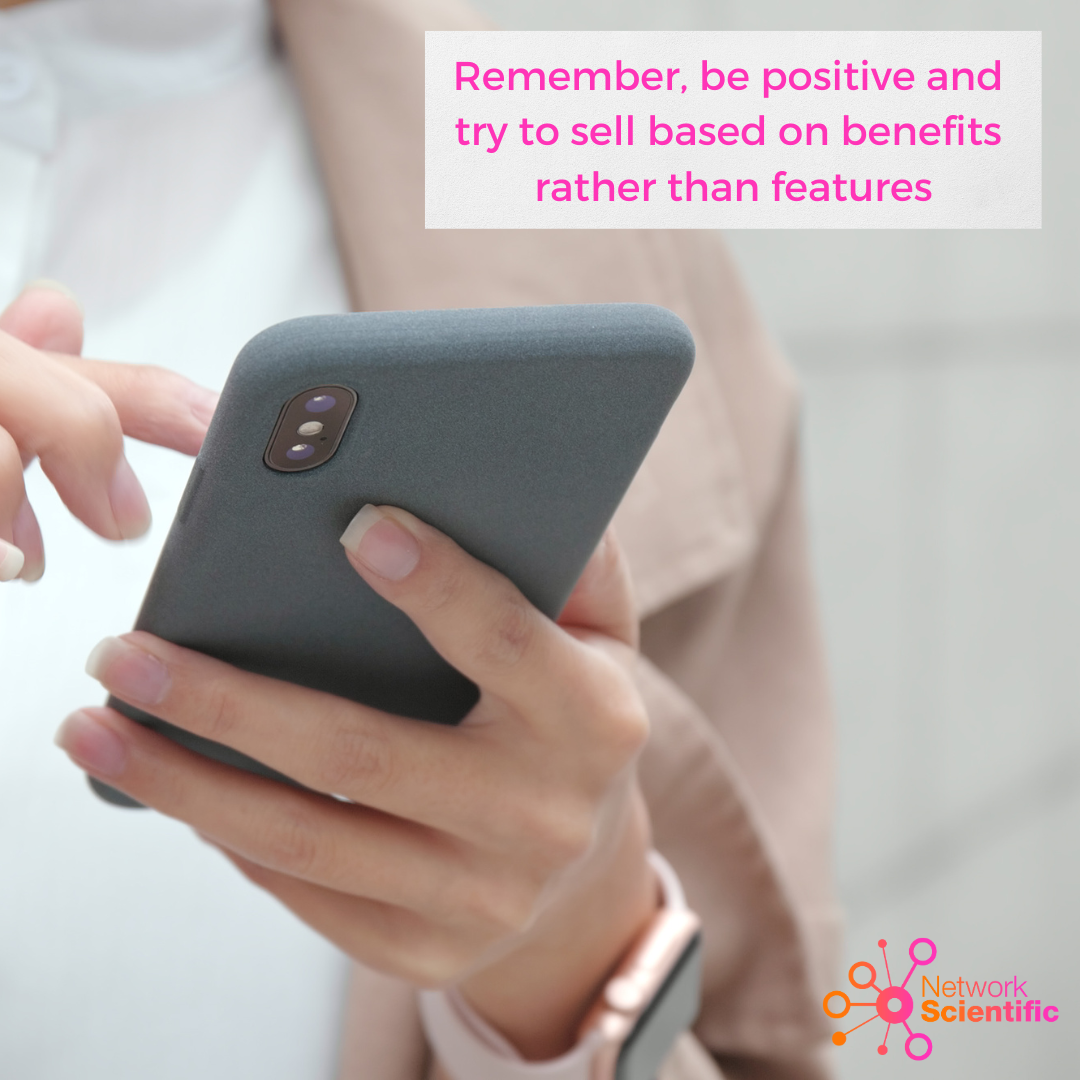The Network Scientific telesales team are making science sales calls day-in, day-out, making company introductions for a variety of different scientific products and services across a wide range of sectors. Not only do we love it, we’ve been doing it for over 13 years! As such, we consider ourselves experts in making sales calls that convert to sales.
Take a look at our team’s top scientific telesales tips:
Know your goals
Before you even pick up the phone you need to be clear in your own mind about what the deliverables are from the call. Are you looking for a sale? A meeting? A commitment to a product demonstration? If, for some reason, you can’t achieve your primary aim, what is an acceptable secondary outcome? This could be commitment to a follow up call or details of a more relevant contact. Lack of clarity at this stage will lead to a call which is unfocused and ineffective.
Do your research
Make sure that you do your research on the company and the prospect before making the call. Familiarising yourself with what the prospect company does and how your offering is relevant to them is pivotal to a successful phone call. It is important to make sure that you have the most relevant contact so that you are not wasting your time (or theirs!) with a call that is irrelevant to them. This is particularly important when making science sales calls as your prospect will expect you to know their key areas of scientific expertise and research.
Be polite

Starting conversations with phrases such as ‘Good morning’ or ‘Good afternoon’ is not only polite, but research shows it is also more likely to put a prospect in a good mood. Making them more receptive to the call and what you have to say. Unless you already have a relationship with the person you’re speaking with, avoid phrases like ‘how are you?’ They don’t progress the conversation and they sound insincere.
Never ‘bad-mouth’ your competitors
There is an interesting psychological concept known as ‘Spontaneous trait transference’, where the person you are speaking with applies any negative traits you express about someone else, to you instead. Unless you are deliberately (and positively) comparing your product or service to that of a competitor, avoid speaking about the competition.
Make sure it’s a good time
Always make sure that you confirm with the prospect that you have called at a time that is convenient for them. If it isn’t a good time for them, organise a time and day that would be appropriate to call back (and take the opportunity to get their email address so you can send a calendar invite). It is important that neither you or the prospect feel rushed during your conversation as you don’t want to come across pushy or disrupt their day, causing them to have a negative view of the call.
Don’t be a pushover
As long as you’re professional and polite, it’s OK to challenge your prospect’s assumptions. If they tell you that they’re convinced that the product or service they’re currently using is better than yours, ask them what they like about it. This will then give you the opportunity to explain how your offering is superior to what they have at present. Of course, for this to work, you need to know your product or service inside-out and back to front.
Stand up
Sales has been called ‘the transfer of enthusiasm from one person to another’. For that transfer to happen you first need to generate enthusiasm at your end and that’s difficult to do while you’re slumped in an office chair. Be passionate about what you do! Stand up, pace around, wave your arms in the air, bust a move or two if you feel the need (just be careful not to knock anyone’s drink over) Your prospect will notice the difference in your demeanour and will respond positively. And even if you don’t close the deal, you’ll enjoy the call a lot more.
Most important of all, try to enjoy it!
People can view cold calling so negatively and this can lead to you dreading making those calls and viewing the whole process as a ‘necessary evil’. Scientific telesales can be enjoyable; you’re given an opportunity to make connections within your network, to learn about different, innovative businesses and identify potential sales opportunities. Of course, you’re always at risk of getting the occasional grumpy so-and-so who will tell you to go away, but so what, that’s a them problem, not a you problem. Dust yourself off and pick up the phone again, you never know, this could be the call that leads you to your next six-figure contract!
Still daunted by the thought of making science sales calls, or simply don’t have the time to do it? Contact us to find out more about how we can make those calls for you.
